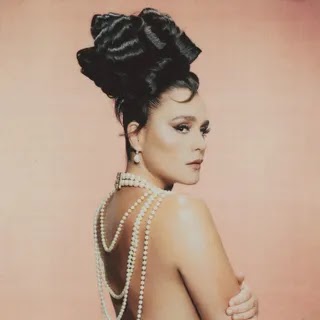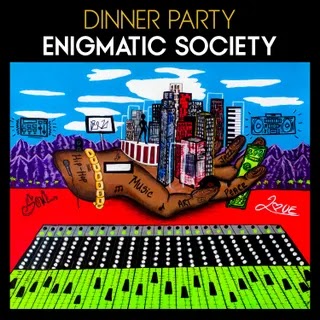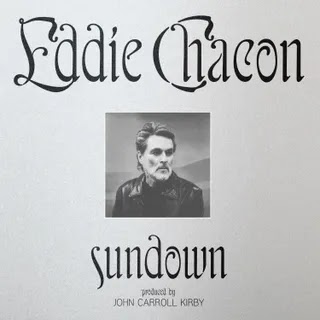Arriving at a moment when his worldwide stardom was in eclipse, this 1996 album was the most daringly personal statement of George Michael’s career.
In 1993, the Brazilian fashion designer Anselmo Feleppa died of an AIDS-related brain hemorrhage, and George Michael lost the love of his life. The couple had been together for only two years, although Michael would forever speak of them as his happiest. Dazed with loss, he sat down at a piano less than a year later in Notting Hill and was astonished to find a keening ballad, complete with lyrics and arrangements, fall in his lap. For a studio perfectionist like him, this was nothing short of a miracle. He’d already let two album cycles sail past him—a purported second volume to 1990’s Listen Without Prejudice and a duets project called The Trojan Souls—because his own material wasn’t up to his exacting standards. Yet barely a week after writing the song, which he called “Jesus to a Child,” Michael performed it at the Video Music Awards on MTV Europe, standing at the footlights and singing an undisguised paean to the man he loved, complete with lyrics that addressed the secrecy of their relationship: “Sadness in my eyes/No one guessed/No one tried.” “For anyone watching ’Jesus to a Child,’ I was coming out,” he said later. “For anyone who had a clue about any kind of symbolism, I was coming out.”
Of course, Michael’s sexuality, he would later deadpan, was the worst-kept secret in show business—it was rumored that Michael broke off his Sony contract after he heard Tommy Mottola mutter a gay slur under his breath when he thought the pop star was out of earshot. And yet in the “don’t ask, don’t tell” climate of the ’90s, it was expected that Michael would work to keep the secret and preserve the delicate fiction of his heterosexuality. Gay pop stars did not come out—unless circumstances conspired to out them, as they eventually did for Michael.
After he wrote “Jesus to a Child,” Michael found himself newly energized, and the second track he wrote, “Fastlove,” was, if anything, even more boldly autobiographical. Where “Jesus to a Child” was chaste and tender, “Fastlove” was unsentimental and frank: “All that bullshit conversation/Baby can’t you read the signs?” The subtext, for those bothering to parse it, was obvious. “It’s all about cruising,” Michael said in the Showtime documentary Freedom, which he worked on up until his death in 2016. “Blunting out that pain with fast love.” Even the BMW Michael mentioned in the lyrics was his own.
This track took him months to complete, which was more his typical pace. For years, Michael had been chasing synthesis as album delays mounted, seeking to merge the raw propulsion of his funky early dance tracks with the refinement and poise of his ballads on Listen Without Prejudice Vol. 1. “Fastlove” represents that moment of fusion, running as fast and purring as softly as the sports car into which he silkily invites his lovers. With its sleek Patrice Rushen sample and Michael’s breathy vocal, the song was such a pure aphrodisiac that it was easy to miss the frank grief haunting the lyrics. “In the absence of security/I made my way into the night… I miss my baby tonight.”
Older was the most daringly personal statement of Michael’s career, and it arrived, not coincidentally, at a moment when his worldwide stardom was in eclipse. He’d always been elusive as a public figure: After releasing 1990’s Listen Without Prejudice Vol. 1, he refused to promote it in any way, which included appearing in his own videos. “Freedom! ’90,” the album’s biggest hit, was a middle finger to star machinery itself, and a grand-scale refutation of his role as pop savior. But perhaps because he was nearly a decade removed from superstardom, perhaps because he’d been partly undone by grief, he approached the songs on Older with an autobiographical abandon that makes the album unique in his slim discography. “Spinning the Wheel” openly addresses gay partnership during the AIDS crisis, with Michael’s narrator chiding a promiscuous partner for putting him in in danger. Like “Monkey,” the big hit from Faith in which Michael cajoled a partner to drop a dangerous drug habit, the song radiates compassionate anger.
Sex was never far from the surface of Michael’s music—this was the guy who inaugurated his solo career with a song that literally shouted “HOO-AH, sex!”—but apart from the occasional lusty outburst, it was often indistinguishable from melancholy, loneliness, or devotion. Sex, like grief, permeated shadow spaces in the psyche. It was a mood, a color, and it could haunt any moment of tenderness, familiarity, or desolation. On the title track, he sings the opening lines—“Strange, baby/Don’t you think I’m looking older?”—with the exact same melody and cadence as the “hot just like an oven” lines from Marvin Gaye’s “Sexual Healing.” It was a self-conscious gesture from an artist who very badly wanted to write timeless music on par with his idols. But it was also a playful acknowledgement of a sort of carnality that rarely makes it onto the dancefloor: the heat of longtime familiarity, lust as expressed by an aging body.
The title alone was a bold statement. Older, in the world of pop music, is categorically the least interesting thing you can be. At least old represents a solid state, a fait accompli. Old can be a pose, a statement. Older is ongoing, humdrum, an ellipsis rather than an exclamation point. But Michael endeavored to reclaim this state, own it, make it sexy. The irony was that Michael was only 32 at the time, but he had the elegant remove of a bachelor in his fifties, and the mood of the Older ballads was straight out of Sinatra’s In the Wee Small Hours of the Morning.
Any reckoning with age brings with it intimations of mortality, and the pall of death hangs heavy over Older. “You Have Been Loved,” which Michael has called his favorite on the album, depicts a Catholic woman standing at the grave of her son, struggling with her faith. Again, the shadow subject is Anselmo—the senselessness of his loss, Michael’s own attempts to contend with his desolation. The lyrics are so wrenching and plainspoken, they scrape lows that are shocking for a pop song—“I’ve no daughters/I’ve no sons/Guess I’m the only one living in my life”—but the song rests on a redemptive note. “‘Take care, my love,’ she said/‘Don’t think that God is dead.’” If “Jesus to a Child” was the farewell—“The love we would have made/I’ll make it for two”—“You Have Been Loved” is the absolution. Few pop songs about the power of love leave such a cold shadow.
The deluxe package, which could swallow a living room floor when unfolded, unearths some genuine gold. Most notably for fans, EP-only and B-side tracks like the aching “Safe,” which suggested Michael was a Massive Attack fan, and the simmering, midtempo “You Know That I Want To” find a home outside of George Michael forums and unauthorized YouTube uploads for the first time. Michael’s own standards hamstrung his output, but the flip side of that precision means the few cast offs in his discography are bewilderingly perfect and finished-sounding.
The collected remixes add to the story of Michael as a quiet force in dance music even as he became more closely associated with dusky balladry. The “A/C Summer Remix” of “FastLove,” which features sultry sax tootling from Wham! collaborator and ’8os sax-cheese king Andy Hamilton, is welcome. But the nine-minute extended workout of “FastLove Pt. 2” is a revelation, a sparkling night highway of vocoder, arpeggiator runs, and bubbly synth pads.
There are some polite, restrained live versions of hits—“Freedom ’90,” retitled “Freedom ’94” here, shows none of the grit or fire of the studio original, even if Michael is in predictably fine voice. The same goes for a gospel choir-boosted rendition of “One More Try”: The vocal take captured on Faith remains Michael’s high point as a singer, a miracle of pristine tone and abandon. Michael’s perfectionism meant he was reliably excellent on stage, but spontaneity was never his strong point. He has always sounded most at home in the studio, where he could stone-cut to his painstaking and agonizing heart’s content.
Older’s commercial reception was muted, perhaps befitting an album that dealt with such weighty themes and held itself at such a cool remove from the pop marketplace. “Fastlove” peaked at No. 8 on the Hot 100, “Jesus to a Child” at No. 7, and that was more or less it for Michael, at least in America. On the fateful night of April 7, 1998, Michael would take a break from work to walk in Beverly Hills’ Will Rogers Memorial Park. A man named Marcelo Rodriguez approached Michael in a public restroom. Unbeknownst to Michael, Rodriguez was an undercover police officer on “potty patrol”—the properly humiliating name given to the ludicrous task of patrolling public restrooms for sexual activity. After he left the restroom, Michael found himself arrested for “lewd behavior.” He passed the time in his holding cell browsing a copy of the National Enquirer, brooding over the certainty that next week’s cover would carry his own face.
Michael handled the incident with unparalleled grace, appearing on multiple talk shows to discuss it. He expressed embarrassment over the incident but emphasized, over and over again, that he felt no shame. The secret was “out,” now: He no longer was obliged to maintain the delicate fiction. But for anyone with a clue, he had revealed himself to the world already, or at least to whoever was smart enough to listen, on his own terms.

%20Music%20Album%20Reviews.webp)













%20Music%20Album%20Reviews.webp)
0 comments:
Post a Comment